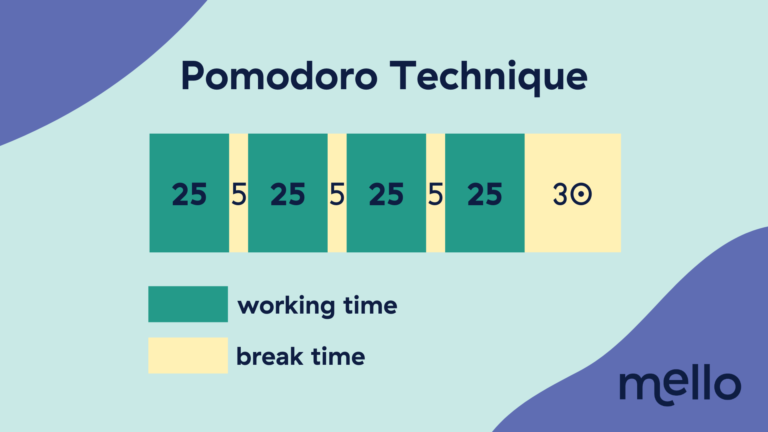If you are a parent, you are likely to value time differently than what you did prior to having kids. At least this holds true for me.
In fact, I wish I had valued my time a lot more before kids, had I known how scarce it becomes once you have little ones consuming your day. Add to this, the global pandemic we are living in, with children home all day, having to keep them entertained and homeschool them, and you quickly realize that if you do not master your day, the day will master you.
Unless you proactively seize your day, you will end up being reactive to everything that comes your way.
While I am far from implementing everything I would like to, I have become pretty obsessed with finding ways to better structure my days and be more productive.
I love how Chrs Bailey, a productivity expert, states that productivity mainly boils down to managing three areas – your time, your energy, and your attention. And I couldn’t agree more. These resources, very much determine what will get done and how it will get done. Here is what I have found to have the biggest impact on my productivity so far, within these three areas.
Productivity is about managing your time energy attention
I. Energy - Optimal State

Maintaining an optimal state is absolutely key in helping you stay on top of your schedule and goals. It works without fail every time you score well on it, and is just as counterproductive every time you fail to maintain good energy levels. Think of all the times your day was shattered because you stayed up too late the night before, had a glass too many or simply overindulged yourself.
By eating well, staying hydrated, sleeping enough and exercising regularly, you can sustain a state that sets you up for success and fuels you with the energy to tackle your goals and stay on top of your schedule.
- Hydration – I keep a 1L bottle of water, always visible by the kitchen counter to remind me to drink throughout the day. I will also often go on a 30-day coffee detox, which forces me to drink healthier alternatives, such as lovely matchas or turmeric lattes.
- Eating well – I get rid of unhealthy snacks, meal prep once a week and keep healthy options visible as well.
- Exercise – I try to get out the door for a run as early as possible on most days. If I don’t make it in the morning, I find that with every hour that goes by in the day, my motivation to leave the house for a run significantly drops.
- Sleep – I try to switch off electronics and screens about an hour before bedtime to improve my sleep. Limiting your exposure to the blue light emitted from most screens will help better your sleep as blue light affects the release of melatonin which is responsible for your deep REM sleep.
II. Time - Can we multiply time?
1. Time diary
Time is often described as the most valuable asset, because once it is gone you can never have it back again. Try keeping a time diary to begin with. Remember, we cannot improve what we cannot measure. This task might appear rather tedious at first, but it is very revealing as to how we spent our time and ultimately help us reclaim any wasted time.
2. The Pomodoro Technique
Schedule a limited time for important tasks. This often forces you to focus more intensively on the task and get things done faster. The Pomodoro Technique works surprisingly well even though I have yet to put it into full effect. It is a time management method, using a timer to break down work into intervals of 25 to 30 minutes, separated by short breaks.

This goes without saying, but try to work in that limited time uninterruptedly for best results. Even though we know distractions set us back and make us hugely more inefficient, we often do not take the time to turn off notifications, or put our phone on aeroplane mode, or shut all windows on our computers to give us that decluttered, clean feeling of our work environment that helps produce more efficient work.

3. The ‘touch it once’ rule
Have you ever found yourself repeatedly looking at the same paperwork or email or pile of clothes and telling yourself you will get to it later? We take so much time redoing the same thing, and trying to refocus from where we left off. It is so counterproductive. The idea here is that as soon as you touch something, you immediately act on it, be it answering an email, booking an appointment, setting time in your calendar, putting your clothes back in place etc. This saves you time but also declutters your mind by leaving no unfinished business so to speak.
4. Moving to-do's to your calendar
Another great tip I have picked up along the way, is moving my main to-do’s into my calendar. This way you block and schedule time for important dates and tasks and hence prioritize your tasks over others people’s agendas populating your calendar.
5. Habits
Finally, forming healthy habits will save you a lot of time down the road, as habits create freedom by making daily tasks automatic. Habits create a mastery and unlock the potential for the next level. Below are some steps to help you form good habits, as outlined in the book Atomic Habits:
- Make the habit obvious and simple to get started on
- Fill out a habit scorecard to track your habits you want to keep and the ones you want to eliminate
- Set a time and location for your habit
- Use the habit stacking method of pairing a habit to an already established one
- Design your environment to eliminate cues of bad habits and prep for cues of good habits
- Do the exact opposite for each bad habit you want to eliminate.
III. Focus - unwavered attention
There is never enough time to do everything, but there is always enough time to do the most important things. What are they?
I often remind myself of this quote when I am faced with an overwhelming number of tasks that need to get done. Practising the discipline to constantly focus on the most important things is an art, but it pays off hugely. And learning to ask yourself frequently enough, whether you are working on what is most valuable to advance yourself, your career or your goals can really help you cut through the clutter and focus on what really matters most.
As the Pareto principal states, 80% of your results come from 20% of your actions and having the clarity and discipline to focus on these will truly catapult you forward.

Rory Vaden, a top leadership speaker, stated in his famous Ted talk ‘How to Multiply Your Time’ that ‘time multipliers’ simply work on the items that will multiply their time and say no to any tasks that are not in that list. By choosing to work on the items that will push them forward they are in essence gaining more time in the future.
The best way I have found to prioritize the work that is most significant or urgent is by writing down my MITs (most important tasks) the night before and reviewing them first thing in the morning, when you are cognitively at your best state. This way you are truly directing your day and not going about the day reacting to a million distractions that are most likely no where near your most valuable tasks that need to be worked on.
Can we mention this again? Delete or simply sign out occasionally from your social media. It is amazing how by just removing the temptation you will gain a huge amount of time spent mindlessly on these distractions.
Keeping a waiting list of things, such as waiting on a response, an email, a package from Amazon, a refund or expenses can be hugely effective in clearing up mental space!
Finally, working on doing only one thing at a time. Multitasking studies show that when we think we’re multitasking, we actually aren’t multitasking. It’s impossible for our brains to focus on two tasks at once, in fact our brains are actually rapidly switching between them. Therefore, our focus and energy is split into two tasks instead of being concentrated on one. And our work turns out mediocre on both tasks.
By our amazing ambassador Corinna Orietta
Further articles from Mello:
→ How to overcome your shyness and make friends through Mello
→ Developing a sense of belonging in a diverse community
→ Interview with Mello Ambassador Carolina
→ Mini Guide: Starting With Cloth Diapers
→ 5 easy steps to get to know other parents during the pandemic
→ 10 family friendly stroller routes, shops and playgrounds in Berlin Neukölln

